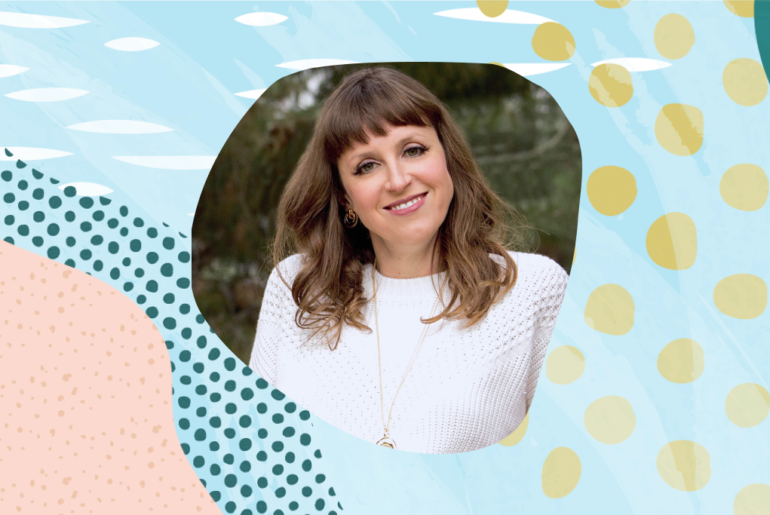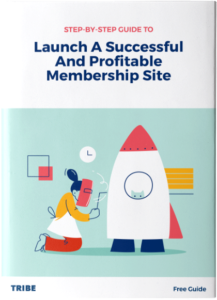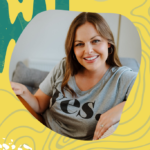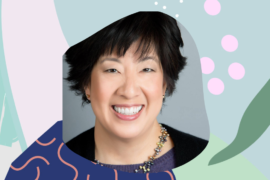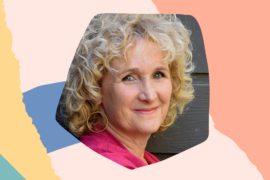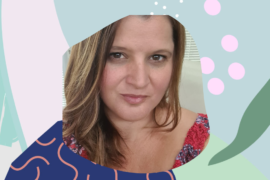Cheryl Engelhardt made a career for herself scoring documentaries, writing jingles, and working with social justice choirs. Eventually, she found herself being asked to speak to others about what it meant to have a successful career as an independent musician, and needed to learn how to answer her fellow musicians’ tough questions about life and business.
Now, at Amplify, she provides a monthly membership and environment designed for optimal on-going success. She provides coaching, content, cross-promotion, community, and a structure so that musicians can create a plan for a long-term successful and fulfilling music career, celebrating every step of the way.
Today, Cheryl joins the podcast to talk about why she chose the membership model instead of conventional coaching, the fatal mistakes that people make when it comes to defining what they want, and how not to lose hope even as your goals shift over time.
Key Takeaways
- How Cheryl built a membership site that thrived as her audience found its revenue decimated by the COVID-19 pandemic.
- Why failing to define what success is holds so many people back – and why it’s so important to be able to articulate your pitch and know what you want, no matter what field you’re in.
- How to create a thriving business out of something that others might see as a hobby.
Free Give
FREE Guide – Launch & Grow a Profitable Membership Site
Ready to reclaim your time and attract more monthly paying customers? Our step-by-step guide will show you how to build a membership site that turns your passion into recurring profit. Click here to download!
Memorable Quote
- “I think the biggest stumbling block that I see in people is that they are seeing other musicians who are ‘successful’ but they’re not actually defining what they want. So, that lack of clarity shows up in how they communicate with their fans on their email list.” – Cheryl Engelhardt
Episode Resources
Transcript
Read The TranscriptShelli Varela: Cheryl B. Engelhardt, welcome to the It’s a TRIBE Thing Podcast. How are you?
Cheryl Engelhardt: I am so good and so excited to be here. Thank you so much for having me.
Shelli Varela: Oh, it’s my greatest pleasure. And may I say Grammy-nominated Cheryl B. Engelhardt?
Cheryl Engelhardt: Not yet. We’re in the first round. So, I’ve submitted. So, we’re about to come up onto the voting. So, the fingers are crossed that you can say that the next time we talk.
Shelli Varela: Excellent. So, we’ll talk a little bit more about that later. So, if anybody wants to or can support you, we’ll talk about that. Will you start with who you are and who you serve?
Cheryl Engelhardt: Yeah. Well, I am a musician, a composer, and a songwriter and that’s who I serve. I serve motivated career musicians meaning they’re not debating whether or not they want to live a full-time career in music. They know that already and they probably have done some work towards it and are in the space of now what? So, my membership for musicians is called Amplify and it’s designed to really give tools around work habits and powerful communication so that the members including myself, I include myself as a member of this group, are constantly able to level up and live a full life of someone who is a successful musician. And we define that for ourselves because it’s different for everyone.
Shelli Varela: That’s amazing. I loved that you said, “I define myself as a member.” There’s nothing better than the leader or the curator of a membership site who is in the trenches with their people because we all know that people come for the content but they also stay for the community.
Cheryl Engelhardt: Yeah.
Shelli Varela: Go ahead.
Cheryl Engelhardt: No, I was going to say it is a coaching and community. So, there is a level of coaching that they get from me. We do a lot of hot seat sort of stuff. And then, of course, there are the community elements and a little bit of content. Just once a month, there’s like a monthly theme and I’ll give a quick 10, 15-minute video with a worksheet and we sort of reference that throughout the month in moments when it’s necessary and we’re able to bring it sort of full circle to what the theme is.
Shelli Varela: Your backstory is rather intriguing. I’m wondering if you could take us all the way back to before you were this incredible person with this membership site helping musicians live their dreams. Who were you before that all started?
Cheryl Engelhardt: Well, I feel like I’m the same but I was the first thing that comes to mind is a big fat dork. So, that’s what comes to mind. I’ve been playing the piano since I was two but I always wanted to be a marine biologist. I loved theater and in high school, I sang in acapella groups and madrigal groups. But I went to college, I went to Cornell, and there I studied biology, but I was still taking so many music classes just because it’s such an interest. But I had this, my parents have always been supportive, but it must have come from somewhere where I had it that art and music was a hobby. And even though I was lucky enough to still love science, I loved biology, my advisor noticed that I was taking so many classes in music. He’s like, “Hey, if you take two more credits, you can double major in biology and music.” I was like, “Okay, let’s do that.” So, I did that. My first job out of college was scuba diving for the United States Geological Survey like literally had a job for the government doing water quality research and we had a break about six months into that and I loved it. It was definitely interesting.
But the November following my graduation, a friend of a friend who knew that I happen to like writing music invited me to go to Rome, Italy to write music for some videos he was producing there and I said, “Okay, I will go to Rome for a month,” and I kind of never turned back. I learned that music can take me to kind of extraordinary places. So, I went back. I moved to New York City, this really cool apartment that I ended up living in for 12 years in Harlem and was paying like $400 rent because I was like, “Alright, I’m going to make a record. I’m going to like score some really terrible indie horror films,” because for some reason that was really easy to get jobs doing and then I ended up getting a job being a messenger in Manhattan like literally running around with a messenger bag, not a bike messenger. That’s a different, whole another level of crazy, but in the advertising industry, and that led me to meeting someone that owned a jingle house, basically the people that write music for commercials. So, I ended up I think I called this guy once a month for a year asking if he had a job. And on the 11th time I called, he said, “Actually our front desk person is going on vacation for a week. You want to come answer phones?” I was like, “I will be there.”
So, I managed to get off the job I had, go there for a week, and then they offered me a job as their assistant tech a couple of weeks later, and there I started my career as a composer. I would work after hours. After the “real composers” left for the day, I would work on whatever commercials they were trying to score during the day and I would do them at night and come in the next morning say, “Here’s what I did.” And they started presenting those. I started winning spots and I was like, “Okay. Now I guess I’m a real composer.” I created some records there. I put a band together. I did some gigs in New York City. I was like, “Oh, I like gigging.” I started touring. I did some more records. Long story short, I left the jingle house, wanting to do more significant work with my music. So, I started scoring documentaries. I started working with social justice choirs. And one thing led to another and I started getting asked to speak on panels about how to have a full-time “successful independent music creation career.” Essentially, that’s what I was doing.
And I learned that a lot of musicians like me had a lot of the same questions. So, I got training and career coaching so I could not just say, “Here’s what I did that work,” because there are a million ways to do anything. But I could actually be effective in answering questions and I put together some online courses. And then I realized that even after the courses, there are still questions so I created this membership four years ago. That was kind of just an afterthought. I didn’t promote it. It was kind of like, “Oh, you want more of me but you don’t want to pay my coaching fee?” Because I didn’t want to be a full-time coach. I was like, “If you want to pay a lot of money, here you go,” and some people did. And that turned into my membership. And then COVID hits, and I instead of once a month going on a Zoom call for $37, I told my musicians, “Hey, let’s go live every day,” because some of them were quarantined alone. Some of them lost thousands and thousands of dollars because all their gigs got canceled. So, I said, “I can handle this because I know how to crank and I also am very, very good with crisis.”
So, we started to go live every day for three months. The group grew to 60 members in that time just sort of organically and I realized that that wasn’t sustainable energetically for me, and also for them. So, I reformatted everything and created, I renamed it, I rebranded, and we now are four or five months into Amplify, which is the membership. It’s going really well. We got 110 members and my goal is to grow to 1,000 this time next year.
Shelli Varela: Wow. That, my dear, is a lot. I don’t even know where to start. I love all of what you’re saying. I happen to have a number of friends who are musicians and have been devastated by COVID. I’m completely fascinated by your story, first of all, because you are what I personally call a hybrid like you have your zone of genius in the art and very few people live in both sides of their brain as equally as you seem to. And I know a couple of people, you know, the same. It’s like you have these balanced energies. One is the art and either whether it be music or actual art and the other is, what is the practical tactical execution of getting the art to have legs in the world? With the people that you work with, what is you think their biggest stumbling block with respect to that? So, they are sort of the music genre and maybe don’t have the business background. What is the most profound thing that you’ve noticed about them that your membership site helps with? And what does it make possible for them because of that?
Cheryl Engelhardt: Yeah. I think the biggest stumbling block that I see in people is that they are seeing other musicians who are “successful” but they’re not actually defining what they want. So, that lack of clarity shows up in how they communicate with their fans on their email list. So, I’ve gone down a whole rabbit hole and created a whole course around email marketing because I think it’s so important and such a goldmine that you’re sitting on. So, getting really clear with what you want and also figuring out how to articulate that either through to your fans or when you’re pitching because we’re always pitching as musicians, to music venues, to music supervisors, that we’re just constantly asking for collaborations so how to do that powerfully so that you’re set up powerfully and the person you’re asking is set up powerfully. And I think we get into the space as independent musicians that no matter what we’re asking for, everyone else is helping us and that’s not empowering for us and it feels wishy-washy. And sometimes people love to help. People love to be other people’s heroes. And I’m not saying there’s anything wrong with that word or anything but there is a skill around how we communicate and it comes from and it stems from your own self-awareness and clarity on what it is you want.
So, we do a lot of goal setting but I have different words for it because goal is overused and means a lot of things to a lot of people that aren’t necessarily the things we want to be working towards. So, we do a lot of that kind of work and a lot of saying things out loud just so we can hear these new words that we haven’t used before used out loud. So, it’s a lot of communication stuff and a lot of self-awareness but it’s all bundled into like the ultimate result is you’re getting the music career that you want. For a lot of people, that’s you’re making money off of your music career, and I think that that is a result. So, that’s how it’s kind of packaged. But then they get in and they’re like, “Wait, I’m working?” People are like, “This is like a therapy call.” And I’m like, “Muahaha.”
Shelli Varela: Like, you buy what you want and they give you what you need.
Cheryl Engelhardt: Yeah. I mean, the people that stay which is most, I think our retention rate is like 96% or 97%. They get it and they get me and I dig in and they let me dig in. And I create the space for them and the safety that they can feel like they can be vulnerable and share and also allow me to come in and be like, “Okay, you want to handle this? Like, let’s get real.” And I set them up and I learned this summer that I really had to define coachability and what it means to try something on. And then you can always get back this old way of thinking or this old way of doing something but like while you’re in this conversation you’re trying something on and to really be clear on what that is so that there’s way less resistance now that I’ve been able to handle that hurdle.
Shelli Varela: I wanted to circle back to what you were talking about with respect to communication and pitching. You know, I’ve done a lot of pitching in my time as well and I love that you’re providing basically a bird’s eye view of something they would not otherwise get to see because they don’t have the background and perhaps don’t have the sort of yin yang, roots, wings kind of mindset that you have. What is the biggest mistake you think people make in miscommunicating the features versus the benefit?
Cheryl Engelhardt: Around what they’re doing?
Shelli Varela: Yeah.
Cheryl Engelhardt: I don’t think they define those. I actually think that the biggest problem is not around defining features versus benefits. For me, I break that down to like the win-win like people want to know what’s in it for them but they also want to know what’s in it for you. Like if I use the example if you go to like this is so stereotypical but if you go to a car sell, car lot, and there’s the used salesman there. He’s like really, really pushing this deal, “This is $3,000 off. It’s really, really awesome.” And you’re like, “Okay, but why are you pushing this? It’s not good for you.” If he was like, “Yeah, and what I get is I get actually a $1,500 commission for that, which is going to allow me to take my kid on vacation.” I’d be like, “Okay, dude, like, I hear you. Now we’re in partnership.” So, sharing what you get out of it as much as what they get out of the win-win is important. But I think the biggest mistake I see people is they don’t ask a yes or no question. And there is science, and this goes back to my dorky days, there is science that proves that when you are asking yes or no question versus a, “Hey, check this out,” the brain does something. The brain actually answers it automatically, which makes your conscious… Your subconscious does not answer it. Your conscious is so much more likely to actually answer.
So, if I say, “Hey, check out my jackets,” versus, “Do you like my jackets?” like you just answered. I hope you like it but versus like you may or may not have looked. You may have been like, “I don’t care,” and linguistically, “Check this out or get back to me if you’re interested or let me know if you’re interested,” that’s what people do in their pitches very often. Those are all commands. You might as well have said, “Come vacuum my house.” So, that is going to land for someone who’s on the other end of your pitch as a command versus, “Would you be willing to talk to me about this Friday at 3:00?” By the way, specificity is also going to much likely increase your chances of getting a response. So, that yes or no question is the biggest mistake. When I get pitched for anything, I don’t see that and I’m always like, “Blah, I have to do all this work to figure out what they actually want from me.” Again, it comes back to clarity and if you know what you want, and that’s the first step in my – I have a course called The Perfect Pitch, which comes with the Amplify membership because it’s so important and I pitch this outline of eight steps that you have to have in every pitch.
We’re not talking about like paragraphs. This can be a four-sentence pitch but it has all eight of these elements. The first one is what’s your intention of this interaction? So, do you want the job? Or do you want an interview for the job? Because you’re not going to end a request for an interview with, “Hey, will you hire me?” No. You’re probably going to say, “Would you consider me for an interview?” It’s a yes or no question and it’s actually what do you want to come out of this? And we sometimes go to like the end game versus, “Hey, let’s do this in the right steps and what does this person need to answer first?”
Shelli Varela: Yeah. It’s kind of like, “Hey, would you like to go on a date?” And also, “Who are we inviting to our wedding?”
Cheryl Engelhardt: Exactly.
Shelli Varela: That’s a lot.
Cheryl Engelhardt: Yeah.
Shelli Varela: So, let’s circle back for a second, if we may, because there are many people that are listening to this show that in their minds, they have something that they want to create in the world that they may deem a hobby because it is perhaps art-related or they don’t have the vision that it could actually be a something. What advice would you give those people? And what advice do you give those people who are in your community?
Cheryl Engelhardt: I think the first, well, the advice that I give the musicians in my community is to play a long game. I think as human beings, we are so trained for instant gratification and a career like a music career or a career in any art, you are making, you’re putting time and love and energy and passion into creating something that you are most often not getting paid for. And you are hoping that you can sell it later. That’s kind of how the art world works. Ideally, you create a body of work that people are like, “Hey, I want to pay you to do this,” and I’ve gotten to that place with working with social justice choirs and high schools and colleges that want to have a piece that says something impactful, where they’re now willing to pay me upfront to write them a piece. But that comes because of the decade-plus the years. So, it’s a long game. And that’s the first thing I really want to create the context that it’s not, I mean, I’ve been saying since I turned 23 that my dad planted the idea in my head before he passed away that I could win a Grammy when I was 23. And I’ve been playing like all throughout my 20s every password to anything online was Grammy by 30, Grammy by 30.
It was like I was playing this game and I was in the pop world like there are thousands of albums every year. You’re competing against Taylor Swift and Pink and like it was an impossible game for me as an indie artist. And I was like, “I’m not going to go for a record deal. That was not my game. My game was the Grammy.” And 30 came and went. I developed some anxiety. I realized that I was not acknowledging the little steps I had made that I was living the life of someone who was up to winning a Grammy, even though I hadn’t gotten that thing yet. And so, I realized it’s about the process. It’s about the journey, not the destination. I know it’s so cheesy but it’s so true. So, now I just turned 40 and I have this record in the new age category and it’s hit number one on iTunes and Amazon and all these new-age charts and it’s making a difference for people. And I’m like, “Oh my gosh,” like the one record that I kind of created just for myself to help my anxiety and my meditation practice, which I started two years ago to help the anxiety, which by the way, has nearly completely gone away since I started that is actually a contender and there’s only a couple of hundred albums in the new age category, not a couple of thousand.
And because the record Luminary has had all this positive press at a time, it came out in February right before COVID hit and then so many people saying this is what has been helping them through. It’s really blowing my mind. But I’m also looking at that it’s been 17 years since I declared that I won a Grammy nomination. So, I’m 17 years into this game. And yet it may or may not happen this year but I’ve also learned so much about this process and being in it like actually doing a real Grammy campaign, not just submitting my record and like which I’ve done in the past and like hope that someone sees it. I don’t know what I was thinking. But I think that’s my biggest piece of advice. If you know that this is a passion of yours for the long haul then own that it’s a long game and that along the way, you’re going to hit milestones and to love on those milestones and to celebrate them. In Amplify, we call them champagne wins, which means they’re so specific that you and all your friends know when to break out the champagne.
So, a lot of musicians are like, “I just want more fans.” And I’m like, “Cool. I just went and signed up on your mailing list. Do we break out the champagne?” But that’s not even a fan. That’s a subscriber. There’s a difference. So, we get so specific with numbers and timelines. And like I know that my champagne win is I will have a Grammy nomination by the end of this year. And if I don’t, I don’t but it’s very clear so either you get it or you don’t. You can’t be a little bit pregnant. Right? You can’t be a little bit of a Grammy-nominated artist. You either are or you aren’t. So, that specificity and that clarity along with knowing it’s a long game are probably the things I would say to anyone that’s like, “I think I want to do this art thing.”
Shelli Varela: Well, this is just the perfect amalgamation of so many like juicy amazing things. It’s like a little bit of therapy, a little bit of spirituality, a little bit of practical tactical butt-kicking. And here at the It’s a TRIBE Thing gang, we absolutely celebrate intentionality. So, if you were to wave a magic wand and have an instruction for some sort of support that we as an audience and a community and anybody who’s going to be listening to this podcast, where is the best place we can, A, get in touch with you online so if somebody wants to join your membership site and, B, support your incredible art and your album?
Cheryl Engelhardt: Well, thank you so much. So, everywhere online, I love Instagram. I’m totally like I just kind of recently fell in love with it. So, I’m CBE Music there. I’m CBE Music on Facebook. CBEMusic.com is my website for all the things I do. My record is called Luminary. So, that’s, A. CBE Music is how you can reach out at any one of those platforms. My record is called Luminary and I created a website for it so you can easily find your favorite listening platform and that would be the call to action. So, if you want to go to IAmALuminary.com, that’s where you can find it, buy it. There’s a journal that goes with it. There are all sorts of stuff there at IAmALuminary.com, and if you’re interested in Amplify, if you are a musician and this sounds like a thing for you, you can go to IntheKey.co/Amplify. You can find all these things from my main site CBEMusic.com. I make it really easy to navigate to wherever it is you need because I know there’s a lot of different kinds of people looking for different things.
Shelli Varela: Incredible.
Cheryl Engelhardt: There you go.
Shelli Varela: Well, we are all holding space for you and for your journey and we’re looking forward to that moment we can break out the champagne with you.
Cheryl Engelhardt: Oh, thank you so much. Appreciate it.
Shelli Varela: Appreciate your time.
[END]
To learn more and get access to all episodes, visit our podcast page!
